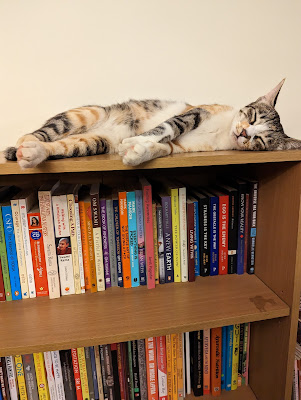How to identify what is junk for the mind?
First, let's think through the properties of junk food for the body:
- It is addictive
- It creates cravings
- Junk food can masquerade as healthy by making use of popular health terms and via influencers and celebrities
- It appeals to one or more of our senses - tasty, looks appetizing, has a crunch, feels pleasant to nibble
- It offers convenience
- It creates a state of aspiration
- It is made with multiple ingredients, many of which we are not sure about
- We have very little clue over how it is getting digested within our system
- We have no idea how the different constituents present in multiple junk foods interact within our system
- The consequences of consuming junk food are experienced in the long run
- It manipulates the functioning of our internal organs (some even at a DNA level)
- It has a longer shelf life
- It is cheap
Junk food for our mind has similar properties:
- Addictive inputs accessed through social media and OTT platforms. Not all content is addictive but there are certain content within such platforms that are intentionally made addictive and we end up sacrificing our time, attention, relationships, and our sleep!
- Certain digital apps and platforms create cravings in the form of FOMO, instant gratification, doomscrolling, variable rewards, and social approval
- A platform might be a generic tool but the way it can be used is up to us. It can be through healthy behaviors (understanding the WHY behind our actions, scheduled times, controlled exposure, etc) OR not-so-healthy behaviors (being available on all platforms at all times, allowing full access to our attention and time)
- Platforms that encourage vanity metrics (likes, followers, tags, subscriber count) create a sense of aspiration. Many of us associate our self-worth with the growth in these metrics. If these metrics fall or remain stagnant, we feel rejected
- Movies and series these days state the type of content upfront. It is up to us to decide whether our mind is ready to digest such content (gory, violent, explicit, substance use, etc) before we decide to consume them. Our age is not the right benchmark. Our mental capacity and sensitivity are only known to us. For eg, horror movies affect sleep for some people whereas, for others, they might still get a sound sleep after watching it.
- Many inputs we take in today get disguised in the name of "expert" perspectives, some of which are impractical and unique to individual's lives provided certain conditions are met. For eg, homeschooling is NOT for every family. If we constantly keep consuming content related to this topic and we aren't able to adopt it as a practice, it creates a sense of frustration and resentment towards ourselves and others.
- Information is easily accessible and cheap these days. It is just a click away but it can easily lead to a sense of overwhelm, especially if we try to load our minds constantly with more and more inputs.
As per our traditional wisdom, there are six teachers of the mind in the material world:
Desire (kama),
Aggression, anger (krodha),
Greed (lobha),
Infatuation (moha),
Arrogance, being egoistical (mada),
Envy, comparison, jealousy (matsarya)
It is worth examining if any of the inputs that we consume regularly increases these qualities in us.
















